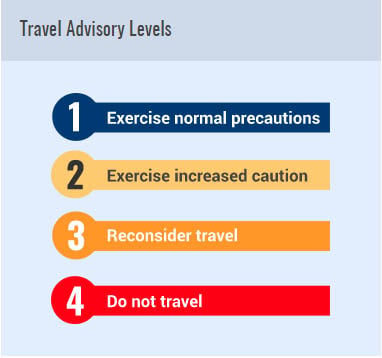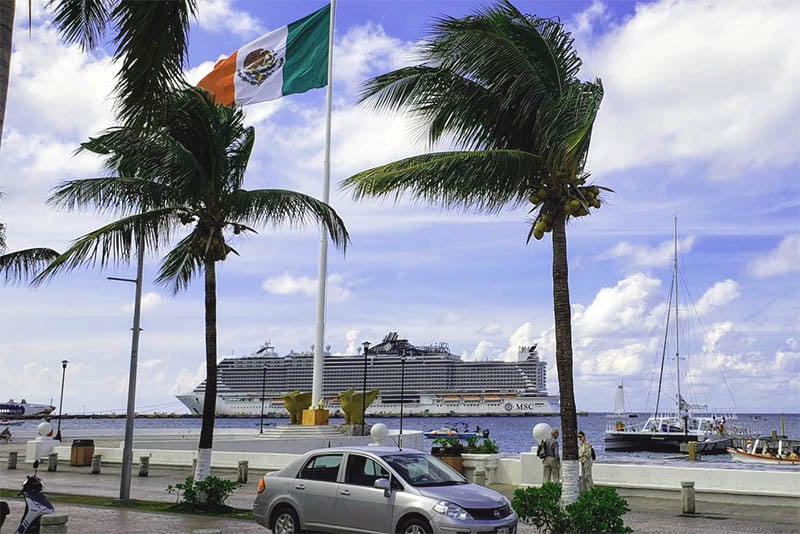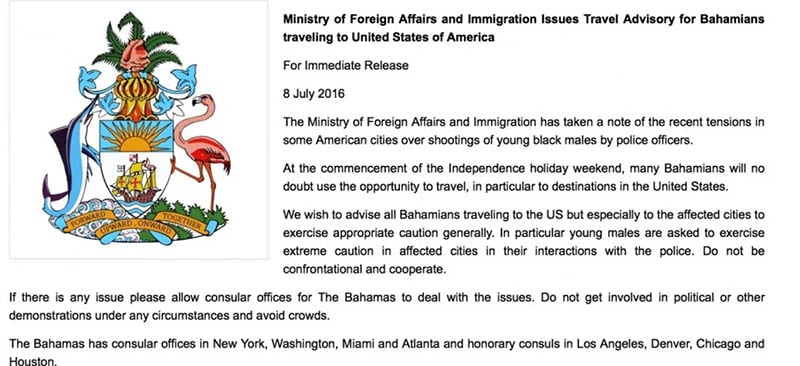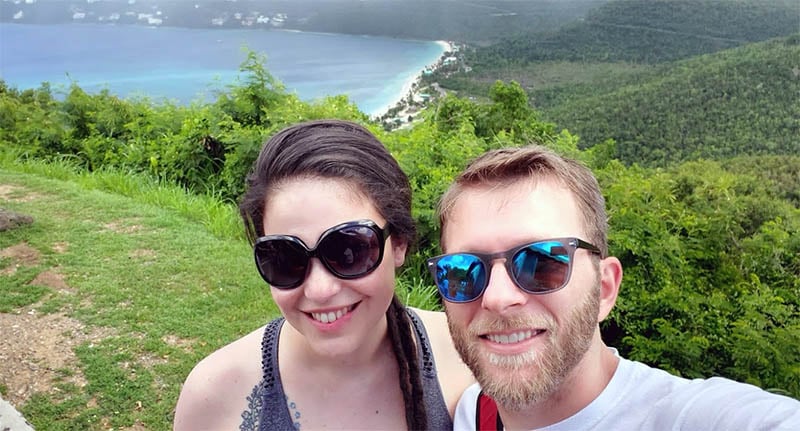The US State Department issues advisories to inform travelers about potential risks in different places in the world. This could be because of crime, political unrest, or other concerns. Safety is important, but so is context and common sense. Let's go over what you should keep in mind when looking at travel advisories and in general, thinking about safety and security during your travels.
Making decisions around safety is personal, and you should consider what is valuable to you, the resources you trust, etc. Below we present crime statistics and other factual information, such as details of the State Department Travel Advisories, all important to keep in mind - but we also share our personal thoughts and opinions around how to apply this information.

There Are Multiple Travel Advisory Levels
Telling your kids to be careful playing outside because there are cars isn't the same as explaining that there is a hurricane going on and walking out the door could be very dangerous. The same is true for travel advisories - there are different levels.

Many places in the world are frequently at Level 2, "Exercise increased caution". In fact, many of the countries at Level 2 are experiencing crime, civil unrest, political unrest, or natural disasters that are similar to what many parts of the US are experiencing at any given time. Often, a region or country will be given a certain level, but specific states, cities, neighborhoods, or even roads might be given a different level. Understanding the exact nature of the concerns, as well as the actual location of concerns, is crucial to both staying safe, and not avoiding places that might be perfectly fine for leisure travel. In fact, that gets us to our next point.
Read the Entire Advisory
US Department of State Travel Advisories can be found here. If you visit however and only look at the advisory name, you're not getting the full story. For example, there is often a travel advisory for Mexico - but Mexico, at 770,000 sq miles, is the 13th largest independent state in the world. Reading the full advisory (as of January 12, 2020), you'll find that the US recommends not traveling to or reconsidering travel to 16 of 31 Mexican states - meaning fifteen of them do not have significant advisories.
If you're visiting Mexico on a Caribbean cruise, you're likely visiting Cozumel (an island) or Costa Maya - both of which are in Quintana Roo, which the US government does not include on the list of places to avoid. In fact, Quintana Roo has the lowest violent crime rate of any state in Mexico, and Cozumel has the lowest violent crime rate of any municipality in Quintana Roo. This of course doesn't mean there is no crime - there is crime everywhere, but the point is that Quintana Roo is a particularly safe part of Mexico (and one of our favorite places to stroll and relax).

Keep Statistics in Context
If you're reading this in the US (as just over 82% of you are), you might picture your serine visit to Bermuda as being free of violence compared to Caribbean destinations - there certainly isn't an elevated travel advisory for Bermuda. While Bermuda is a very safe place for people to visit though, you'll probably be surprised to learn that they have a homicide that is over 50% higher than that of the Unites States. When in the Caribbean however, perhaps it's the safety of the US Virgin Islands that you seek - which has a homicide rate that is almost ten times as high as the US mainland (and roughly double that of Mexico).
At risk of making it seem like every place is dangerous (as my point is quite the opposite), if you focus only on these broad statistics without regard for specific areas and circumstances, I'll ask the 82% of you reading this in the US if you'd tell your friends in the UK that it's too dangerous to visit the United States, since we have a homicide rate that is almost five times theirs. Probably not, right?
Travel advisories work both ways actually, with a number of nations advising it's citizens to use special caution while traveling to the United States. For example, Germany warns it's citizens about gun violence, advising them not to attempt to fight back if attacked. The government of the Bahamas several years ago advised it's citizens to exercise extreme caution in areas where there are tensions between citizens a police, urging them to avoid crowds, use extreme caution in dealing with police officers, and advising them not get involved in political demonstrations. The point is these advisories contain important information, but unless they're specifically advising citizens to avoid specific areas, understand they're just aiming to provide helpful information.

*The above stats come from the United Nations Office on Drugs and Crime
What Most People in the World Have in Common
The majority of you reading this are fortunate enough to live in safe places and travel to exciting destinations. Part of the draw of travel is that we get to meet other people and see how they live - because different cultures and geographies are part of what make us all unique. At the same time, there are parts of life we don't often think about that make us so similar. All over the world, people in far more dangerous places than our home countries, wake up each day, have breakfast, go to work/school, come home, sleep, and do it all over again. When you're traveling abroad, you'll likely have a similar result, but with way better Instagram posts.

Final Thoughts
Bad things happen everywhere, so just as a friend getting into a traffic accident probably shouldn't keep you from driving, you shouldn't stay away from places just because you saw on the news that something bad happened there. News stories get people's attention by presenting things in a sensationalistic way, and more often than not, only focus on bad things. This makes sense, I'd think it pretty strange if I turned on the news and heard, "Absolute mundanity unfolds in Boca Raton today as nothing of negative public interest took place". This is all the more true of places away from our homes, where we, generally unintentionally, don't seek out much information at all - only taking in what's presented to us by others.
No matter what anyone says about an area, you should always use extra cation while vacationing. We tend to carry more cash and be decidedly less aware of our surroundings than when at our neighborhood grocery store. Pay attention to State Department and other warnings, use common sense, but remember that most people, they're going to work, going to bed, and going it again tomorrow - but you'll be on vacation!


